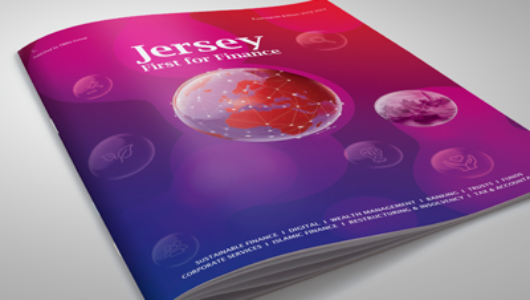Sustainable investment has been shown to achieve higher returns (alongside the other benefits, including better managed risks) over the longer term.
The history of sustainable investing through responsible environmental, social and governance (ESG) principles has been increasingly popular since it was officially launched in 2005 by the United Nations Environment Programme Finance Initiative in a report called ‘The Principles for Responsible Investment’. This helped provide a voluntary framework which investors could use to incorporate ESG into their decision making and ownership practices.
Since the signing by world leaders of the Paris Agreement on climate change in 2015, realisation has dawned that it affects all of us. The generations of today now also want the purpose and impact of wealth to be taken into account. Sustainable, responsible and impact (SRI) investing aligns investments with the values and requirements of the investor, alongside the financial rewards.
Jersey is keen to play it part in this journey and Jersey Finance launched its vision of Sustainable Finance: Jersey’s Pathway to Success in March 2021. As part of that, the Jersey Association of Trust Companies (JATCº), alongside STEP Jersey and other industry heads, work closely with the Government of Jersey, Jersey Finance and the Jersey Financial Services Commission (JFSC) to help this vision succeed by developing deep industry expertise.
So how do trustees implement sustainable investing alongside their fiduciary duties?
In looking to meet its beneficiaries’ desires for impact investment and taking into account they must act in their best interests, the trustee must first look to the trust instrument to see what investment powers it has. Most trust instruments will, in accordance with the Trusts (Jersey) Law 1984, state the trustee has the same powers as a natural person acting as the beneficial owner of such property. That is to say, the trustee needs to exercise a duty of care as an ordinary prudent person
would.
The trustee will in the past have discussed investment objectives with their beneficiaries and documented this in an investment objective plan. This plan should be reviewed on a regular basis to ensure the needs of the beneficiaries have not changed and where they have, that the investment mandate is updated.
Restrictions that may have been included in the past are likely to have been around specific investments that should not be included in an investment portfolio (often called the seven sins, such as cigarette, alcohol and arms manufacturers). The consideration of sustainable investment is an extension of this and trustees, as part of their regular reviews, should discuss the potential risks and benefits of sustainable investments as part of the overall investment strategy, with beneficiaries’ views documented. This will assist the trustee with determining which investments, mandate, investment managers and appropriate investment benchmarks to use, so that they are able to regularly monitor the investment performance of those portfolios held within their fiduciary structures.
Assuming the trust instrument allows for the widest investment powers, the different types of investing approach open to a trustee to achieve this are:
- No investments are undertaken in businesses that carry out unacceptable activities.
- Funds are directed into businesses with practises, capable of being continued indefinitely without causing harm to current or future generations, or exhausting natural resources (known as sustainable investing).
- Use of screening which uses negative screening (removes unethical companies but includes neutral companies that are not doing anything bad but also not doing good) and positive screening (removing unethical and neutral companies and as mentioned earlier, actively seeking to influence corporate behaviours by engagement and shareholder activism).
- Best in class is selected for a particular industry sector thereby looking to encourage others to improve.
- Portfolio tilting – the majority of the portfolio is invested in the normal way because of fears with performance results and a small amount is earmarked for investing ethically.
As with any investment proposal, the trustee will undertake its normal due diligence around the proposed investments and investment managers. With the different jargon used for ESG and sustainable investing, trustees do need to be aware of greenwashing. This is where companies exaggerate the environmental benefits of their actions.
ESG measurements are a developing area. Trustees will expect to see approved, recognisable ESG measurements in the future, like other key financial performance data, to help them with their decision-making and exercising their investment powers.
One of the easiest for trustees to recognise at present, is those businesses certified as B corporations where those companies have been through a vigorous process by B Lab to meet the high standards of social and environmental performance, transparency and accountability.
The financial statements produced by those businesses invested in will start to include ESG measurements and the International Sustainability Standards Board (ISSB) has been tasked to provide a universal standard, having been created in November 2021 at the COP26 summit to do this.
Trustees with their fiduciary duty to enhance the trust fund, will be regularly monitoring the investment performance of those portfolios held within their fiduciary structures and have noted as in the opening of this article, that those with higher ESG scores have outperformed those with lower scores.
As part of the ongoing investment monitoring process, the trustees themselves, or through their selected investment managers, are holding businesses that they are invested in, more to account, through traditional methods such as at the annual general meeting and voting powers that the members hold or adverse results from overnight screening/media being used in discussions to drive the impact and results desired.
Another area as part of that ongoing monitoring, is ensuring that investment management fees charged are appropriate as part of the overall investment portfolio, as where previously a premium may have been included as this was seen as a niche area by investment managers.
OTHER OPTIONS
Jersey is also able to offer other wealth planning solutions, depending on the needs of the beneficiaries and their circumstances, such as a specific clause in the trust instrument, settlor reserved power, a purpose trust or a charitable trust.
Alternatively, a foundation can be used for specific purposes or depreciating assets. The council is not subject to the same duties as a trustee but rather to the object of the foundation.

